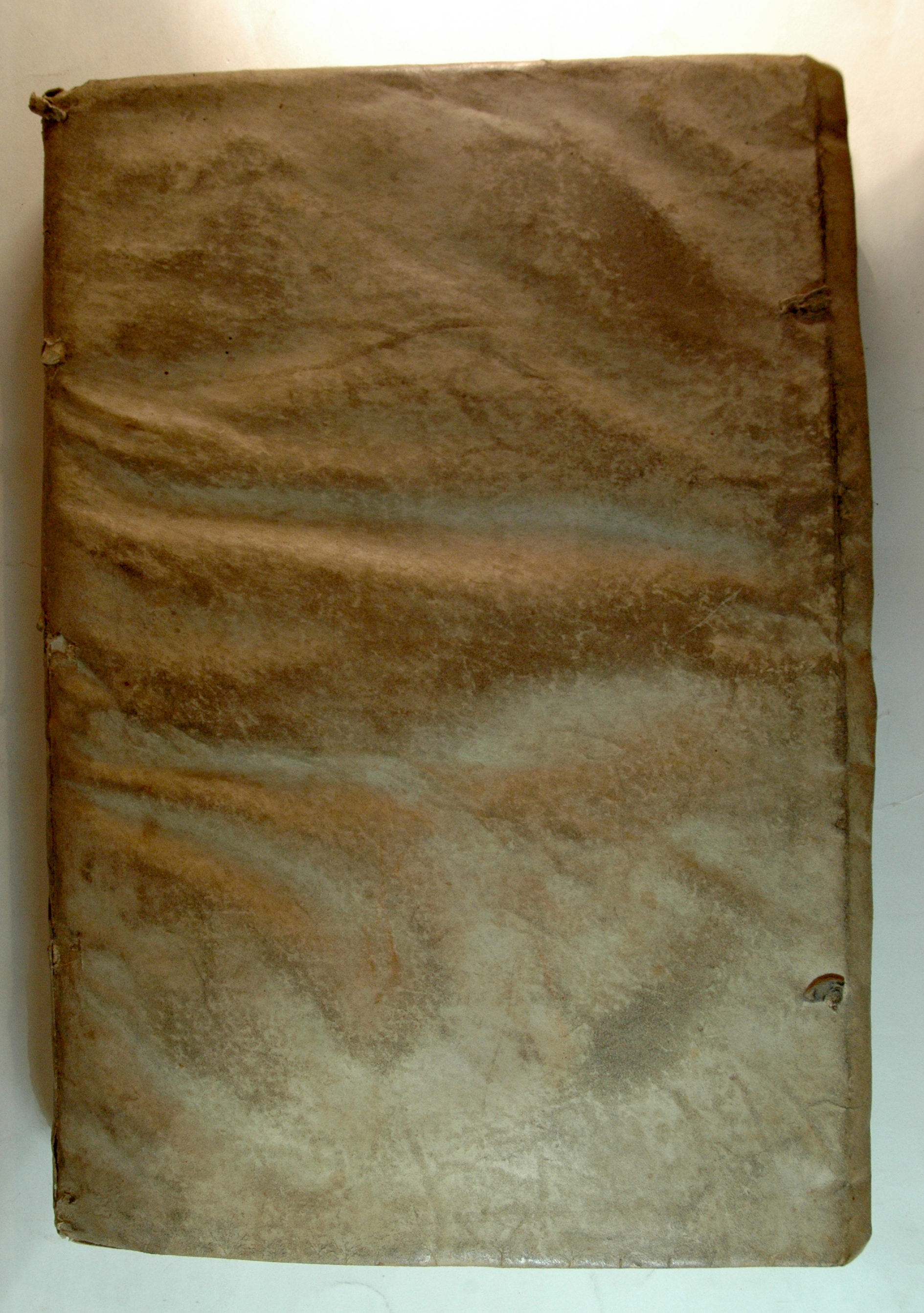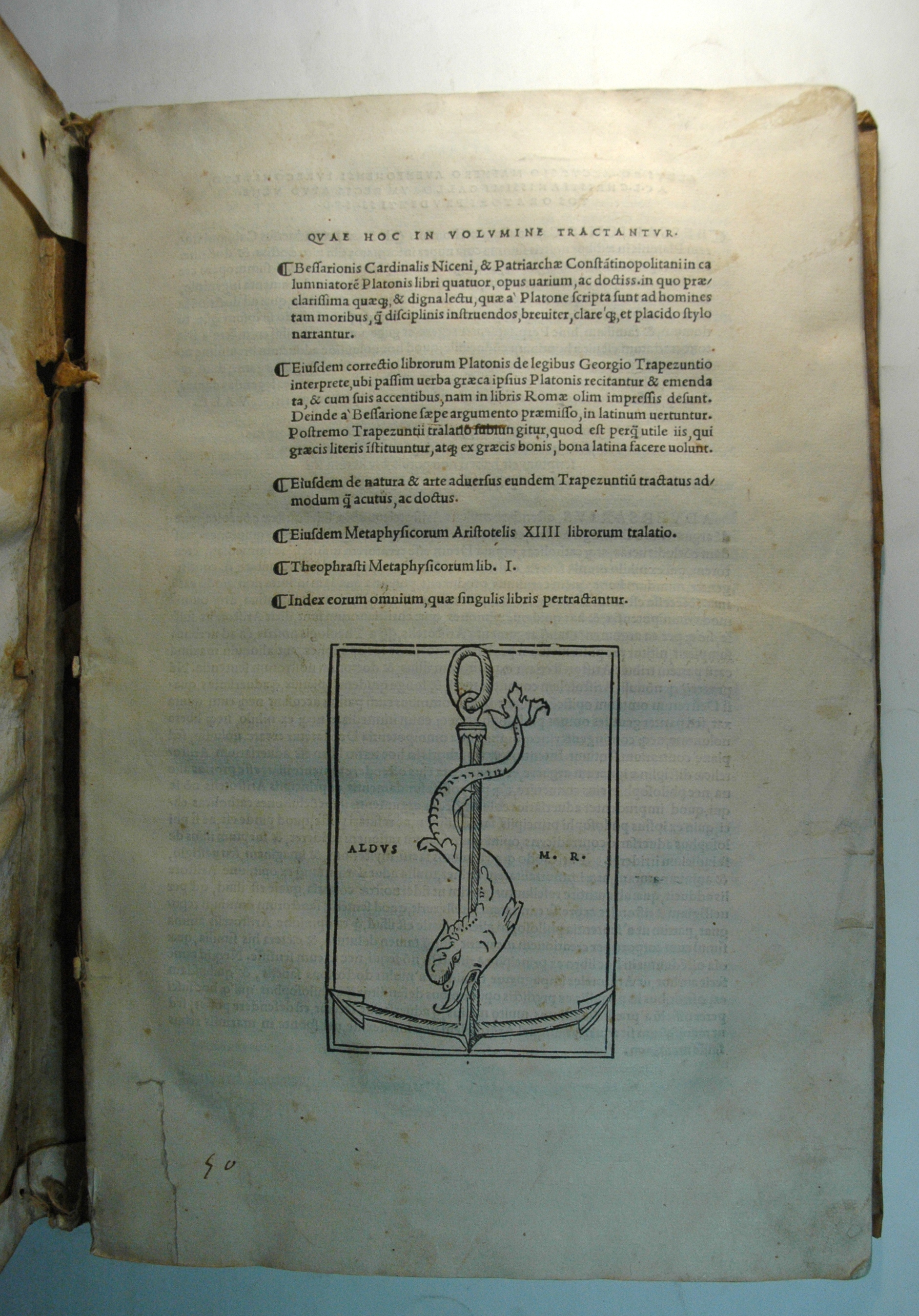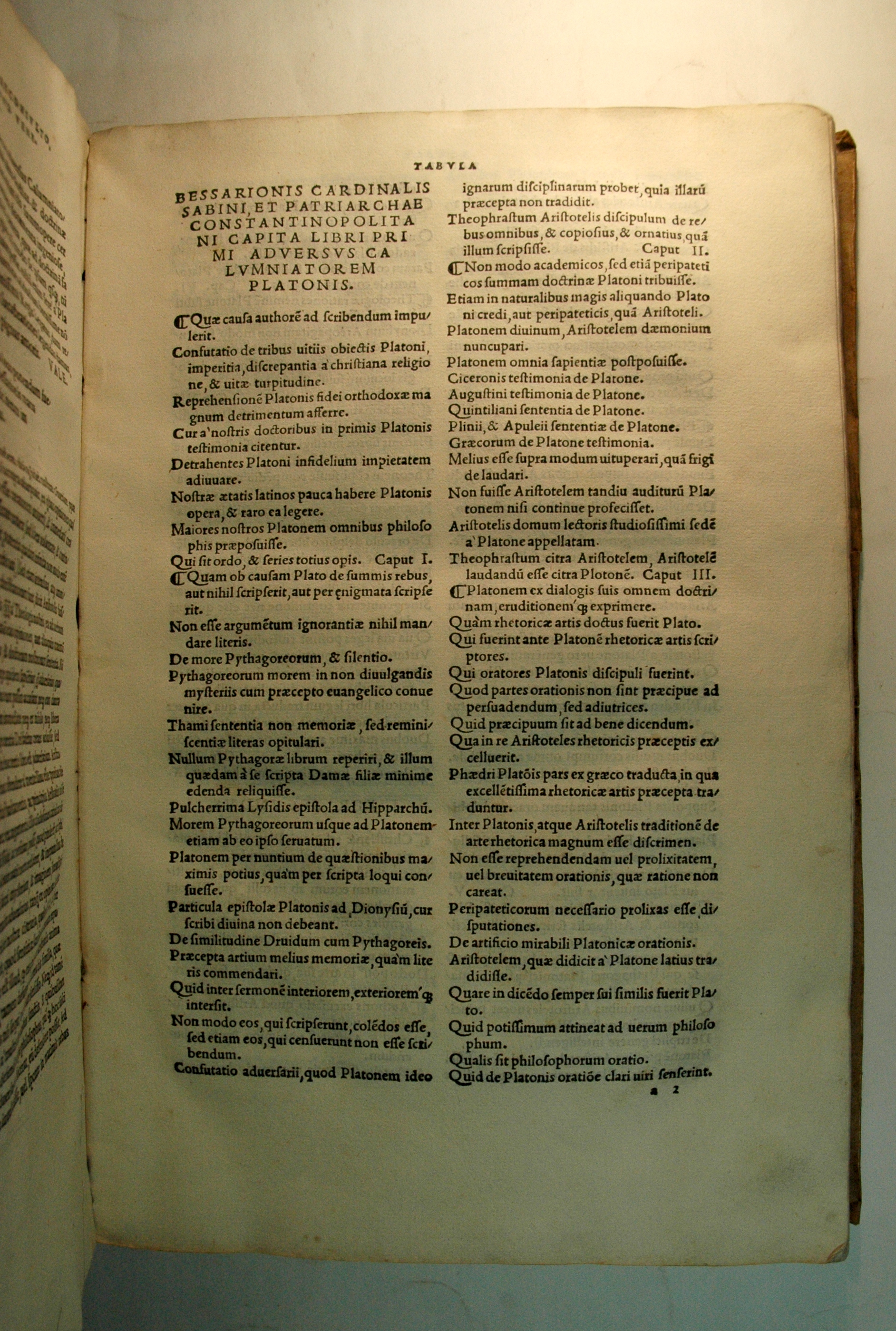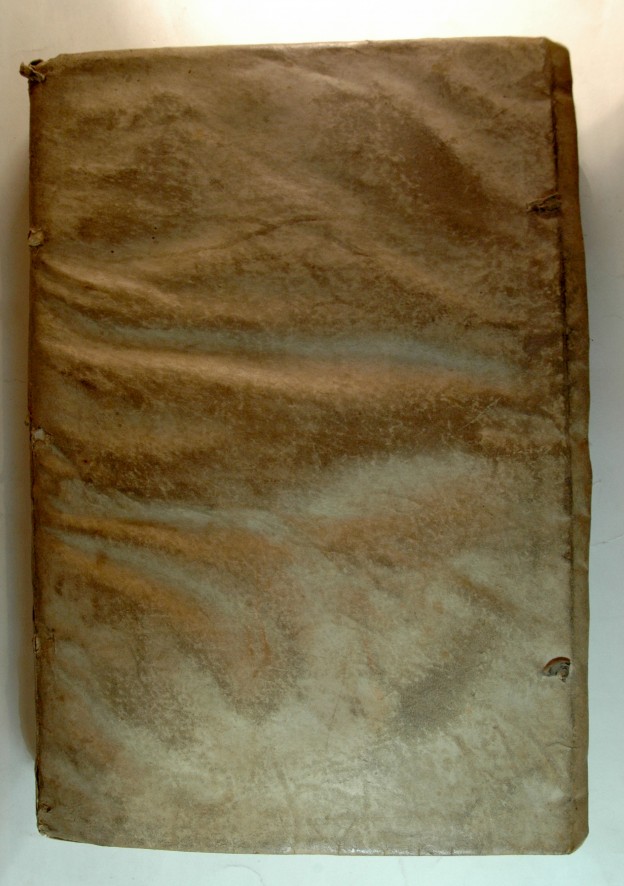BESSARION, Cardinal Johannes
In calumniatorem Platonis
Venice, in aed. Aldi et Andreae Soceri, 1516£15,000.00
Folio. ff. (viii) 116 + 55 (i). Roman letter, some Greek. Two parts in one, FIRST EDITION of second. Separate t-p to each with printer’s anchor and dolphin device, repeated on verso of last:very slight soiling to first t-p, two very small repairs to blank verso of final leaf of first part touching a handful of letters on recto, lower outer blank corner of final leaf restored. A very good clean, well margined copy in contemporary limp vellum remains of ties, ’50’ in contemporary hand at foot of title page, several early ms. case-marks to inside upper cover, a very handsome volume in its original binding.
Part I comprises the second much expanded Aldine edition of Bessarion’s great defense of Plato and Platonism, written in response to the translation of the ‘Laws’ by George of Trebizond who had taken advantage of its publication to print a sharp criticism of Plato and exalt Aristotle. Bessarion, one of the great humanists and Hellenists of the mid C15 had studied philosophy under Gemistus Pletho and imbibed from him a love of Plato, happily shorn of Gemistius’ hatred of Aristotle. Bessarion rather advocated a synthesis of the two systems of learning, perceiving and appreciating their many points of contact and in the present work (ch. 5) demolishes Trebizond’s attack by the simple device of enumerating verbatim all the errors of his translation and faults in his commentaries. The second part of the present work, here printed for the first time, comprises Bessarion’s own translation of Aristotle’s metaphysics and book one of those of Themistius.
It is said that Bessarion, the greatest scholar – statesman – diplomat – ecclesiastic of his age, had three aims in life: the reunion of the Latin and Eastern Church, the rescue of Greece from Moslem occupation and the triumph of classical literature and poetry, especially the Greek. He succeeded temporarily in the first, partially in the second , and beyond all expectation in the third – paving the way for the great revival that was to follow. In between his many extraordinary labours in the public field, organizing crusades, restoring the City and University of Bologna, dominating great international councils, he became patron of the very first Renaissance Accademia (actually founded in his house) and amassed an extraordinary library of more than eight hundred codices of ancient Greek ms. – which he gave to form the basis of the Marciana in Venice.
BM STC It. p.90. Renouard 76:4. Brunet I 827. “Edition plus ample mais moins rare que la précédente”In stock





